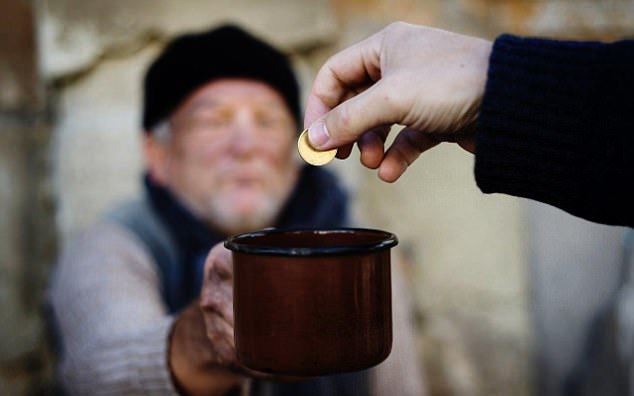Being generous really does make people happier, according to new research.
Areas of the brain that are triggered during altruistic acts were found to be linked to feelings of contentment.
The discovery sheds fresh light on why people feel gratification from giving, even when it comes at a cost to themselves, according to Daily Mail.
Merely promising to be more generous was enough to create changes in our brains that makes us happier, the study suggests.
The amount of generosity did not influence the increase in levels of contentment, meaning even small acts of giving produced a sense of well-being
The findings were the result of a study of 50 people by team of researchers, led by
Volunteers took part in a money spending experiment
Scans revealed that neurons in an area of the brain associated with generosity, the temporo-parietal junction (TPJ) activate neurons in the ventral striatum, which are associated with happiness.
Psychologist Dr Soyoung Park one of the lead researchers, said: ‘Generosity and happiness improve individual well-being and can facilitate societal success.
‘However, in everyday life, people underestimate the link between generosity and happiness and therefore overlook the benefits of prosocial spending.
‘When asked, they respond that they assume there would be a greater increase in happiness after spending money on themselves and after spending greater amounts of money.
‘Our study provides behavioural and neural evidence that supports the link between generosity and happiness.’
‘These findings have important implications not only for neuroscience but also for education, economics and health.’
The researchers predicted that people who had committed to spending their endowment on others would behave more generously in the decision-making task.
Dr Park added: ‘We found significantly higher levels of generous behaviour and happiness, as reflected by greater TPJ activity for generous choices and generosity-related connectivity of the TPJ with striatal happiness regions.
‘We thus conclude that the interplay of these brain regions links commitment-induced generosity with happiness.’
N.H.Kh

